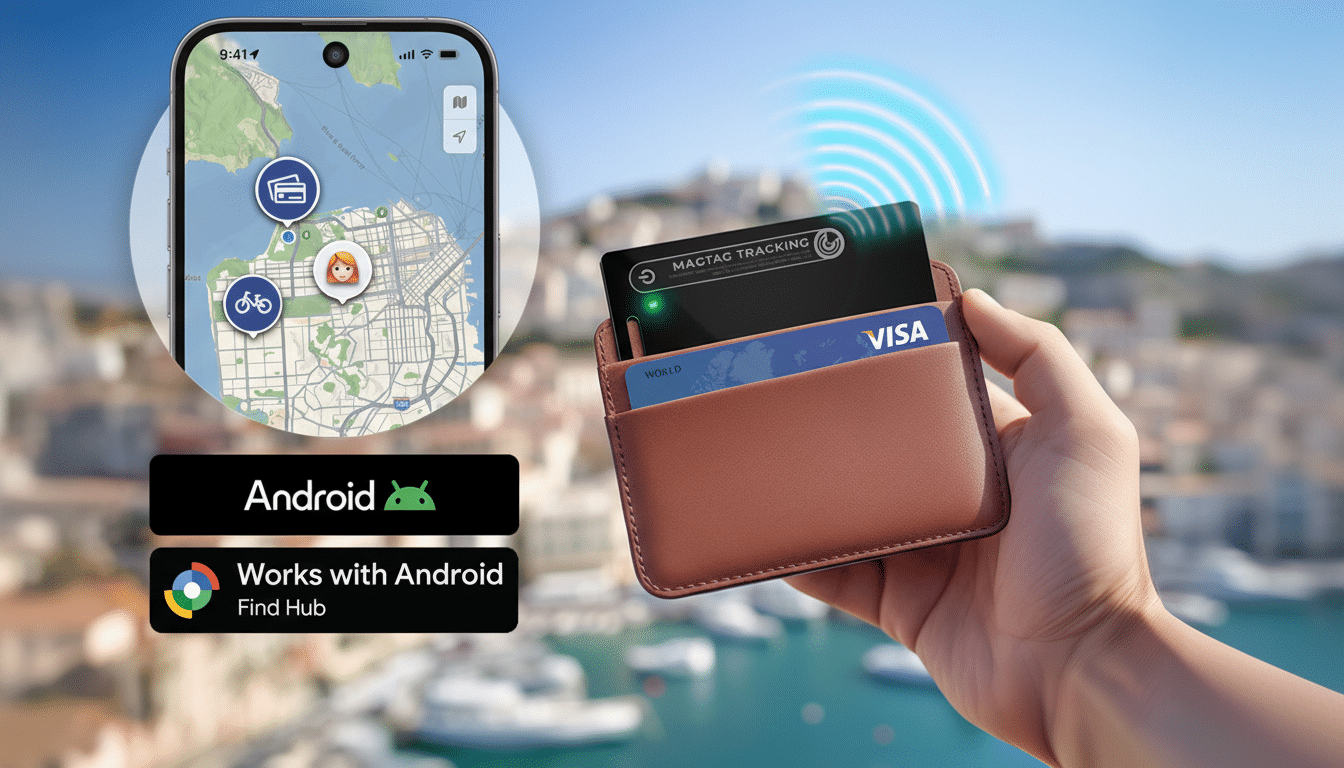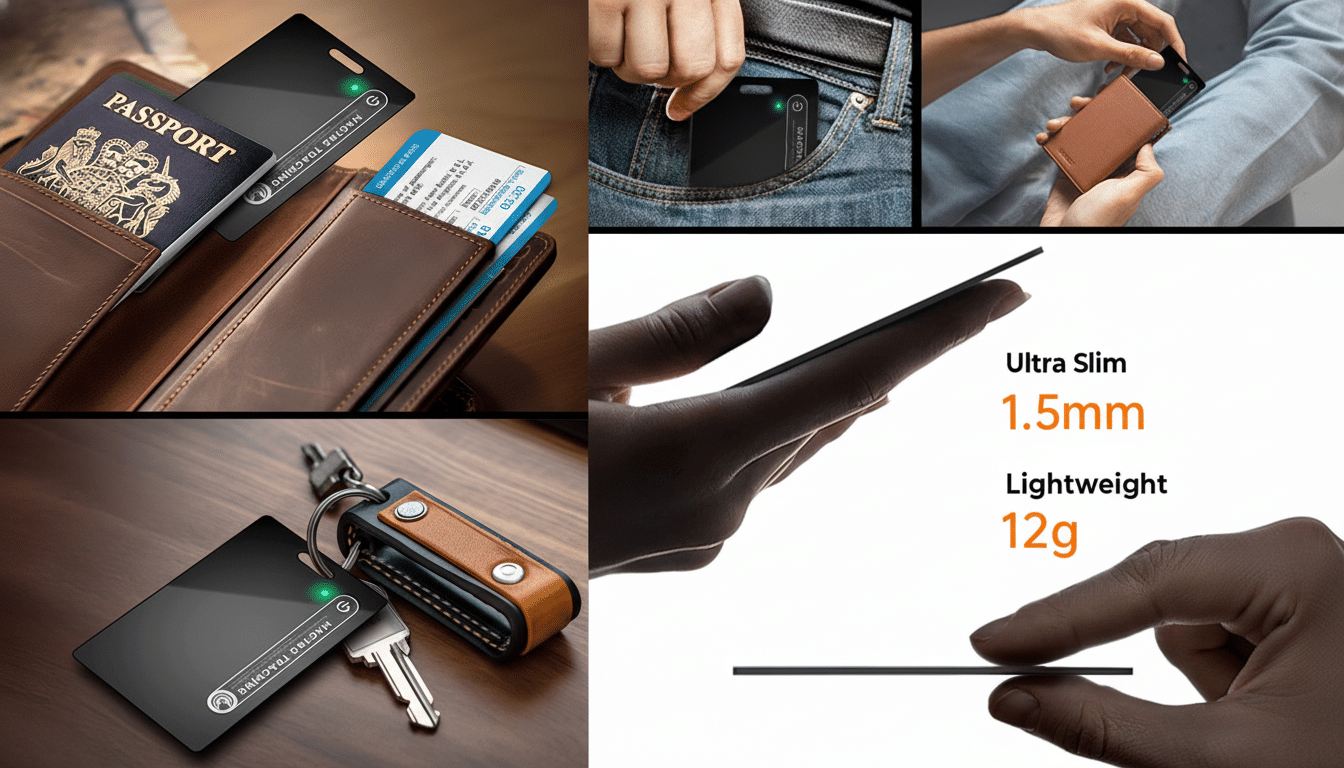A skinny smart tracker, roughly the size of a credit card, that you can slip into your wallet or passport holder is now $23.99 for an effortless way to find lost essentials with no added bulk.
The MagTag Ultra Slim Tracker Card works with Apple’s Find My network so your iPhone or iPad can help find anything you’ve lost — like your wallet, bag or keys — in just a few taps. At this price, it’s an attractive alternative to chunkier fobs and a steep discount from its $59.99 list.

Ultra-thin card design meant for standard wallets
The MagTag is the size and shape of a typical credit card, and about two stacked cards thick, so it can actually fit in billfolds you have that don’t take coin-style trackers. Slide it in between your ID and plastic cover, tuck it inside a passport case, or thread it through a bag loop with the built-in keyring hole — no bulky bulge, no special case needed.
Card-style trackers aren’t particularly novel; after all, it’s still an unusual shape in the world of Apple Find My–capable accessories. Many shoppers are considering options such as the Chipolo Card Spot or Tile Slim; both get good wallet ratings, but with a trade-off: non-replaceable batteries. But the MagTag’s rechargeable scheme makes it stand out, and one that’s equally as pocketable.
Find My network coverage and real-world accuracy
The power of Find My–compatible trackers is in the network effect. Apple has more than a billion active devices worldwide, and the Find My network leverages that footprint anonymously. When your tracker is out of range of your own Bluetooth, other Apple devices can relay its location to your iCloud account in a privacy-protecting way — no subscription required and without identifying the participating device. Apple’s system uses rotating identifiers and end-to-end encryption to help protect people’s privacy, a design the company has acclaimed in its own platform security documentation.
In real-world practice, that means you can view a last known location on a map and then, if you get closer to the object, trigger an audible chirp so that you can zero in further; the on-screen arrow of Precision Finding is exclusive to Apple’s U1-equipped devices, so don’t expect it from third-party cards like this one. Still, the trio of map placement, proximity cues and sound tends to narrow the search quickly — particularly indoors where a ring gets strategically between couch cushions or backpack pockets.
Travelers, particularly, can gain a lot. SITA, another company that monitors airline baggage performance, has said the issue rate for mishandled luggage was 6.9 per 1,000 travelers worldwide. A thin tracker placed in a checked bag can provide the peace of mind at baggage claim and useful clues if a suitcase has taken an unexpected detour.
Battery life and build quality for daily durability
The MagTag’s rechargeable battery is rated to last up to five months on a single charge, depending on how often it pings the network and plays sounds. And charging via USB-C means no proprietary cables, and no consumable coin cells. While it’s slim enough to reside in a wallet or travel pouch, the ability to recharge means the product has a much longer lifespan than sealed, disposable counterparts.

An IP68 rating adds resilience. That rating means strong protection against dust and water beyond one meter for a set period, according to the IEC 60529 standard. Practically, the card should shrug off rain, an accidental run through the washer or spill in your tote bag — a useful insurance policy on a device that’s designed to go everywhere your essentials go.
Value compared with alternatives and popular trackers
Priced at $23.99, the MagTag undercuts plenty of wallet trackers. That’s around 60% off its $59.99 MSRP and below many of the popular Find My–capable cards that typically fall within the $30–$40 region. Apple’s AirTag is still a great choice for tracking keys or a bag, but it’s not card-shaped; without a special wallet, it won’t easily fit in most billfolds.
There’s also no service fee. Certain non–Find My ecosystems will pitch a premium subscription for additional features such as smart alerts or an extended location history. And because Find My is baked right into iOS and iPadOS, setup is a breeze, and the total cost in subsequent years will be effectively $0.
Who It’s For, Who It’s Not And How To Get The Most Out Of It
Consider what you’d want back in the event that it gets lost: a daily wallet, a work badge holder, a gym bag, a passport case before an international flight. If these are your pain points, a card tracker seems more practical than a fob. Families can place one in a kid’s school backpack; students can slip one into a campus ID sleeve; frequent flyers can nestle one into checked luggage as a last-gasp failsafe.
It takes a minute to set up: Open the Find My app, add a new item, if prompted press the tracker’s pairing control, and name it something memorable. You can even enable separation alerts so that your phone buzzes if you move away from the wallet. Before counting on it, test the audible ring around your home and office, so you recognize how it sounds through various materials.
Bottom line: For the cost of a takeout order, you get a rechargeable card that is IP68 rated and Apple Find My compatible and can change a lost-and-panicking moment into an oh, there it is! one fairly quickly. At $23.99, it’s a simple step up to daily peace of mind.

